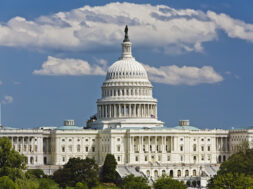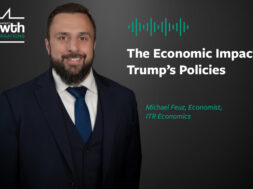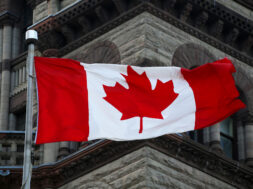Middle-Market Public Policy Roundup
The Fed approves a major policy change, stimulus talks drag on, and a subcommittee reports on wasted PPP loans.

With the August recess over, work in Washington, D.C., resumes. In this week’s roundup, we look at the Federal Reserve, which unanimously approved a major policy change that could see interest rates steady at current levels until employment and wages improve. The roundup also highlights a call between lawmakers and White House staff as stimulus talks drag on, a subcommittee report on PPP loans, and the House Financial Services Committee’s September schedule.
Fed Signals Major Policy Change in Unscheduled Meeting
In an unscheduled session of the Federal Reserve’s decision-making body last week, the central bank unanimously agreed to a significant change to its underlying monetary strategy that could keep interest rates lower for longer.
At the surprise meeting on Aug. 27, all members of the Federal Open Market Committee agreed to a change in strategy that included abandoning the practice of preemptively lifting the Fed’s benchmark rate to soothe inflation, a policy that had been in place since 2012.
By decoupling monetary policy from inflation, the Fed is instead focusing on fostering maximum employment and wage growth to fend off the continued effects of the coronavirus pandemic on the economy, which the central bank felt it could not do while also tied to maintaining inflation at a 2% level—a policy established by former Federal Reserve Chairman Ben Bernanke in the wake of the financial crisis.
“Many find it counterintuitive that the Fed would want to push up inflation,” Federal Reserve Chairman Jerome Powell said in a statement during a virtual version of the Fed’s annual symposium in Jackson Hole, Wyoming. “However, inflation that is persistently too low can pose serious risks to the economy.”
The news could come as a relief to companies and investors that leverage bank lending for business operations and M&A, but the shift could also mean a steady rise in the cost of goods in the future.
Lawmakers and White House Talk Stimulus, But No Traction
Lawmakers and Trump administration officials are continuing to negotiate the next round of stimulus funding, but there appears to be no progress on the horizon.
House Speaker Nancy Pelosi, D-Calif., spoke with Treasury Secretary Steven Mnuchin by phone Tuesday after reaching an impasse with White House Chief of Staff Mark Meadows earlier in the day.
But Pelosi questioned Mnuchin on the White House’s hesitance to approve the amounts Democrats are asking for in the next federal relief package and criticized Mnuchin’s proposal that each item be rolled out incrementally, rather than in a single stimulus bill.
“Sadly, this phone call made clear that Democrats and the White House continue to have serious differences understanding the gravity of the situation that America’s working families are facing,” Pelosi said in a statement following the meeting.
Mnuchin continues to advocate for a robust federal response, including a boost to Paycheck Protection Program funding, which he outlined at a congressional hearing on Tuesday.
Billions of PPP Dollars Potentially Wasted, Subcommittee Report Finds
The Select Subcommittee on the Coronavirus Crisis released a preliminary staff report on the Paycheck Protection Program, showing that billions of dollars in PPP loans may have been diverted to fraud, waste and abuse.
The subcommittee chairman, Rep. James Clyburn, D-S.C., sent a letter on Sept. 1 to the Small Business Administration and the Treasury’s inspectors general requesting a review of the Trump administration’s management of PPP.
“The Subcommittee’s analysis shows that PPP helped millions of small businesses and non-profit organizations stay afloat during the coronavirus crisis, but a lack of oversight and accountability from SBA and Treasury may have led to billions of dollars being diverted to fraud, waste, and abuse, rather than reaching small businesses truly in need,” Clyburn said in a statement.
Among the findings, the report identified more than 10,000 instances where borrowers received multiple PPP loans, for a total of over $1 billion. PPP rules prohibit companies from receiving multiple loans. The report also flagged nearly $3 billion in suspicious loan activity.
The subcommittee concluded by requesting the SBA and Treasury improve PPP’s audit plan.
Financial Services Committee Releases September Schedule
The House Committee on Financial Services released the schedule for its virtual and hybrid hearings for the month of September. All hearings will be live-streamed here.

Benjamin Glick is an associate editor of Middle Market Growth.


